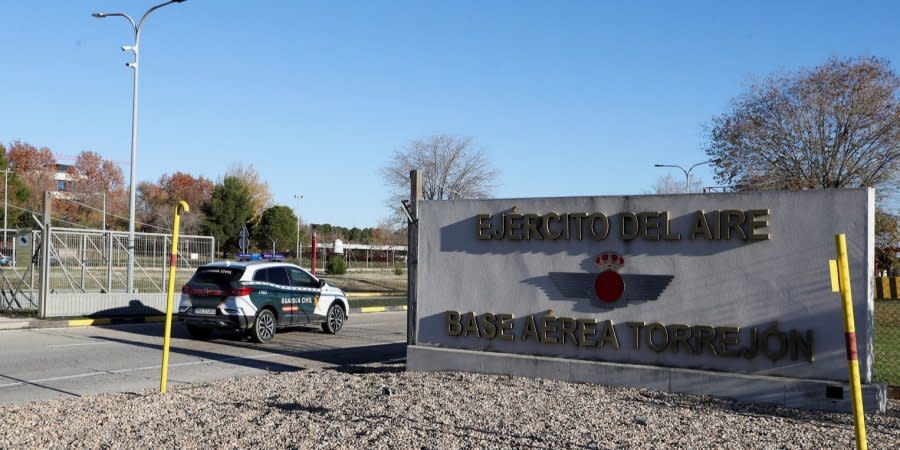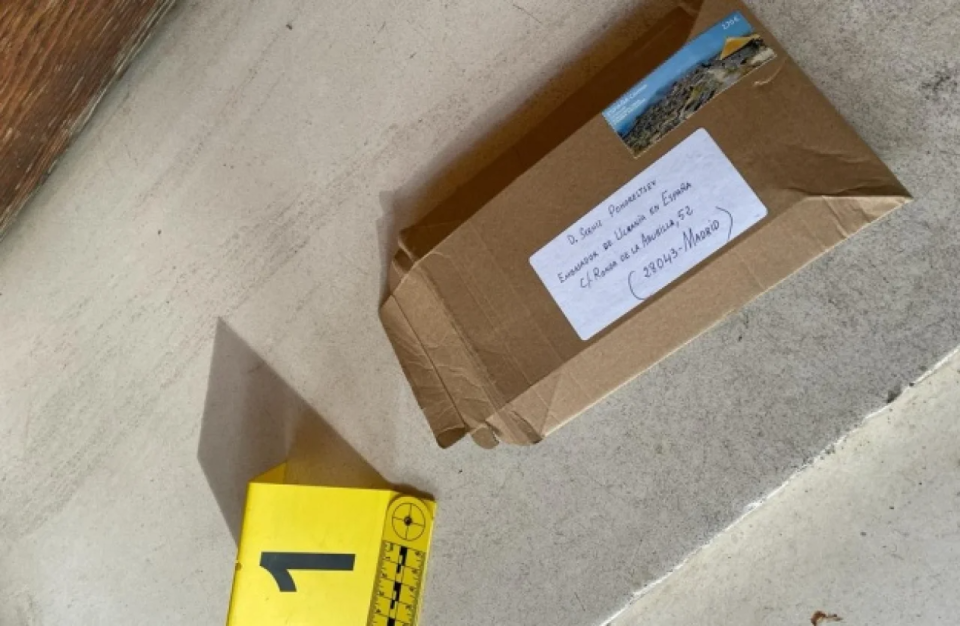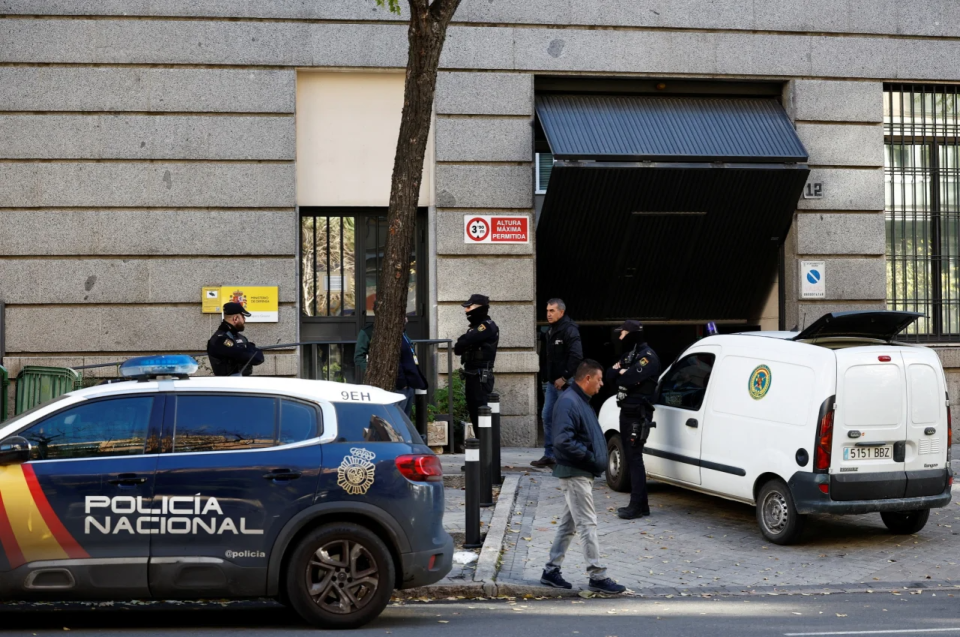What is known about a series of parcels with explosives discovered in Spain

- Oops!Something went wrong.Please try again later.
NV has assembled the key things known so far about the string of incidents.
Timeline of incidents
As of December 1, six instances of small parcels or envelopes containing explosives have been discovered in Spain.
On Nov. 24:
The security service of Spanish Prime Minister Pedro Sanchez discovers explosives in a letter (the dangerous parcel was intercepted on Nov. 24, but the news became known only on Dec. 1)
Nov. 30:
An explosion at the Ukrainian Embassy in Madrid occurs at around 1.00 p.m. local time, injuring an embassy employee. The package was intended for the ambassador personally, but was flagged as suspicious by embassy employees. The commandant on duty tried to open it, and received injuries to his hand as a result of the explosion).
A few hours after the explosion at the embassy, an envelope with explosives was discovered at the Instalaza arms manufacturing company in Zaragoza in northeastern Spain, which manufactures weapons for Ukraine (in particular the S-90 and Alcotan-100 hand-held anti-tank grenade launchers).
Read also: Three Ukrainian embassies receive threatening letters
Dec. 1:
A parcel with explosives was discovered at the airbase in Torrejon de Ardos (Community of Madrid) addressed to the European Union’s center for satellites. The airbase’s security system detected a suspicious envelope, and subsequent X-ray analysis determined that it may contain a mechanism inside.
An explosive device was sent to the Spanish Ministry of Defense (it was also discovered by security services, and caused no injuries);
Another package with explosives was sent to the US Embassy in Madrid. The facility was secured by law enforcement, and anti-terrorism measures were taken.
What is known about the contents of the envelopes and the sender
Ukrainian diplomats offered the most detail about the packages. According to Ukrainian Ambassador to Spain Serhiy Pohoreltsev, as quoted in European Pravda, the parcel delivered to the embassy in Madrid was significantly larger than an ordinary letter with documents.
The mail was addressed personally to Pohoreltsev, but his staff was suspicious because it did not look like ordinary diplomatic mail (pictured below).

The secretary handed the parcel to the commandant, an employee who is also responsible for the security of the embassy.
"A box was found in the package, so the commandant became suspicious, and he himself, so that no one was around, went out with this "mail" to the yard before opening it. And as soon as he opened it, he heard something click there, and he immediately threw it away, and just then heard an explosion," said Serhiy Pogoreltsev.
According to the ambassador, although the commandant of the embassy was no longer holding the box in his hands at the time of the explosion, his hand was injured (the Spanish media reported an injury to his ring finger), "and he says he got something like a concussion," the ambassador added.
And although, according to Pogoreltsev, the package contained not a powerful explosive, but rather a small device, the consequences would have been different if not for the caution of his subordinates.
"First of all, I want to recognize the employees of the embassy, because if it were not for their professional actions, the consequences would have been much more serious," the ambassador said.
The commandant of the Ukrainian embassy was hospitalized. He received medical assistance and was soon released, and there is no danger to his life.
In Zaragoza, where the explosives were sent to the Instalaza defense company, they received an envelope measuring approximately 10x15 cm and 1 cm thick. An X-ray showed a wired explosive charge ready to go off when the envelope was opened. The police conducted a controlled detonation of explosives near the plant, but for this they had to evacuate its employees and block off nearby residential areas.
Read also: Russian deserter from brigade accused of war crimes in Kyiv Oblast seeks asylum in Spain
Zaragoza government official Rosa Serrano told the SER radio station that the envelopes (including the parcel at the Ukrainian embassy) appear to have had the same sender. The same email address was hand-written on the back of the shipments, according to the Spanish publication Heraldo. The Embassy of Ukraine confirmed that the parcel did not have a return address, which also raised questions among the institution's employees.
As reported by the Spanish ABC news portal, a suspicious shipment was intercepted in the office of Prime Minister Pedro Sanchez on Nov. 24, six days before the explosion at the Ukrainian embassy. During the usual procedure of checking and filtering the prime minister’s correspondence, security service employees found a "suspicious parcel."
"It was an envelope addressed to the head of the government, sent by regular mail," Spanish law enforcement officers said. It was later neutralized. According to preliminary information, the shipment contained an explosive substance "similar to that used in pyrotechnic devices." The Spanish Ministry of the Interior has increased security measures in all public institutions, particularly regarding mail checks.
First details from the Spanish investigation
When the dangerous envelope was discovered by the Prime Minister Sanchez’s security service, the National Police notified the National Court.
After the explosion in the embassy of Ukraine in Madrid, the National Judicial Board of Spain classified the incident as a terrorist attack, the Spanish agency Europa Press reported, citing its own sources. According to preliminary analysis, the package that exploded at the embassy reportedly contained pyrotechnic elements.
When the next parcels with explosives were discovered, Spanish media cited police sources saying that Spanish law enforcement officers consider the parcels to be connected to each other and are now uncovering evidence that would support this conclusion.

Sources in the investigation also told Spanish agency Colpisa that Instalaza was aware that the manufacturer of the packages was in the spotlight as early as spring 2022. In March, the Spanish government sent 1,370 C-90 and Alcotan grenade launchers manufactured by Instalaza to Ukraine, as well as a batch of light machine guns and 700,000 rounds of various calibers, as part of one of the first shipments of aid to the Ukrainian armed forces after the start of the full-scale Russian invasion. At that time, the Spanish mass media widely covered dozens of cases when servicemen of the Ukrainian Armed Forces hit Russian equipment with S-90 grenade launchers.
The European Union satellite center at the Torrejon de Ardos airbase, where one of the parcels was sent, is also connected with the provision of aid to Ukraine. Earlier, the EU High Representative for Foreign Policy, Josep Borrell, confirmed that the center would be used to assist Ukraine. The center is capable of providing aerial and satellite imagery, and the United States and other Western allies help the Ukrainian Armed Forces with similar intelligence.
Ukrainian reaction
The Ukrainian Ambassador to Spain, Serhii Pohoreltsev, in comments to the news publication European Pravda, declined to speculate on who could have sent the dangerous package. However, he assured reporters that the Spanish authorities promised to make every effort in their investigation, and the head of the Spanish Foreign Ministry, Jose Manuel Albarez, has already had a telephone conversation with the Ukrainian ambassador to express his support.
Ukrainian Minister of Foreign Affairs Dmytro Kuleba instructed Ukrainian embassies abroad to urgently strengthen their security.
"Undoubtedly, this is a very serious event. This is an attack on a diplomatic institution protected by international law,” Kuleba stated on the day of the explosion at the embassy in Madrid.
“We will protect every Ukrainian not only in Ukraine, but also abroad, with all the means available to us. And when it is established who committed this terrorist attack, we will take all measures to ensure that this person or these people are punished as severely as possible.”
Read the original article on The New Voice of Ukraine

